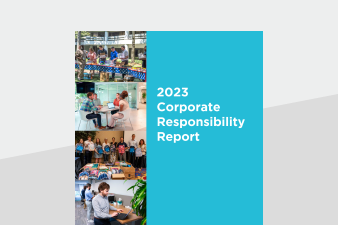Insights
Featured Insights

2023 Corporate Responsibility Report
ReportThis annual Corporate Responsibility Report details the actions ScottMadden took in 2023 to address important societal and environmental sustainability issues that are material to our business operations…
READ MORE
Setting the Stage for Tomorrow
PillarToday, companies are facing the same degree of turbulence as they did while the threat of a recession was looming, making the path to improvement seem long…
READ MORE
Coming Clean: The Highs and Lows of the…
PillarMomentum toward a clean energy future seems certain. The difficulties related to the clean energy transition are evident as the industry implements these goals.
READ MORE
Elevate Your ServiceNow Implementation with ScottMadden
ArticleScottMadden is a trusted partner in optimizing ServiceNow solutions for transforming organizations
READ MORE
Navigating Lead Time Deterioration in Electric Utilities
ArticleFor electric utilities, where the delivery of critical components like transformers directly impacts service levels, managing lead times is not just strategic—it's essential. Lead time deterioration, characterized…
READ MORE
SpareLogic – Understanding What Matters
PillarWith SpareLogic, step into a world where spare part management is no longer a guessing game, but a strategic, data-driven process.
READ MORE
StockStatus Interactive: Revolutionizing Inventory and Material Management
PillarStockStatus Interactive is your partner in achieving a streamlined, efficient, and proactive supply chain management process. Let us help you make informed decisions and reduce operational roadblocks.
READ MORE
Security Staffing Assessment and Organization Design
Case StudyScottMadden analyzed work activity across an enterprise and redesigned organizational roles to align with the most urgent security needs.
READ MORE
Security Controls Assessment and Implementation
Case StudyTwo large U.S. energy companies merged and needed to standardize their security controls across the newly consolidated enterprise.
READ MORE
Telecommunications VoIP and Data Circuits
Case StudyScottMadden supported a complex, whole-system upgrade of legacy telecommunications equipment for a midsize southwestern utility.
READ MORE
Offshore Wind Development Go-to-Market Strategy Assessment
Case StudyRegional characteristics, including policy, key local market participants, and local energy generation economics, are key considerations when creating clean energy development projects.
READ MORE
Security Awareness Program Design and Implementation
Case StudyScottMadden assessed awareness of security standards and requirements and created a standardized communication program for all internal stakeholders.
READ MORE